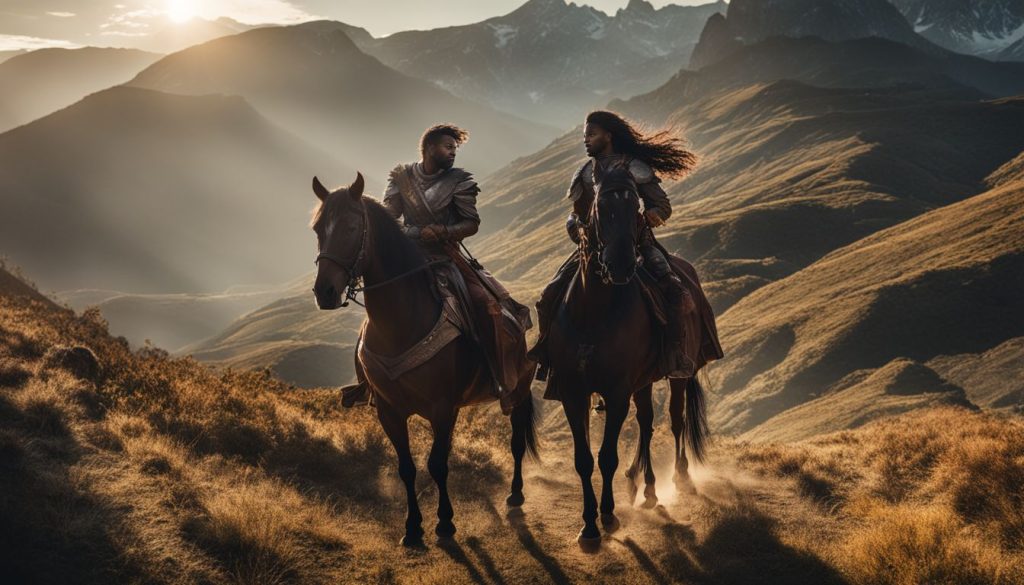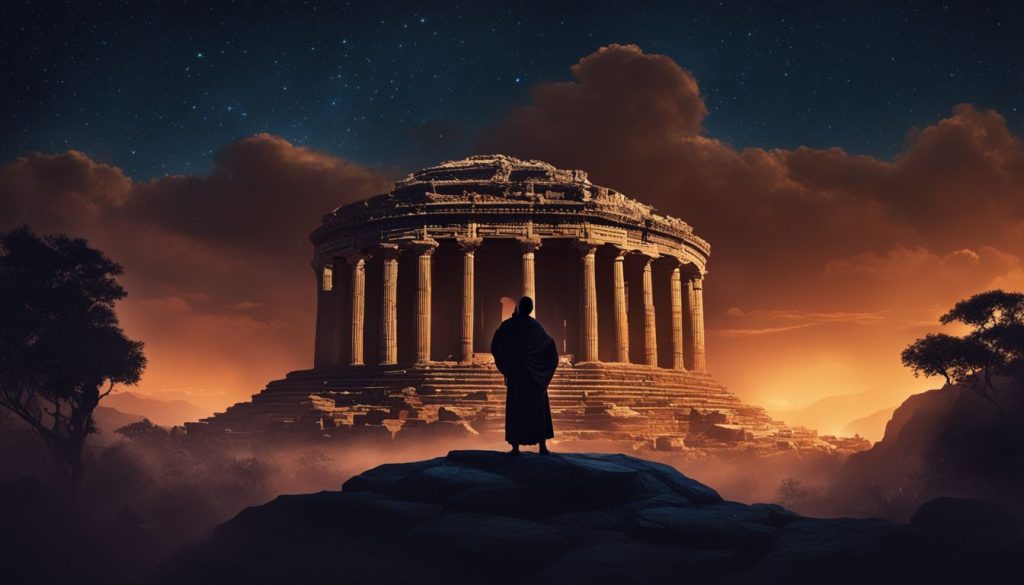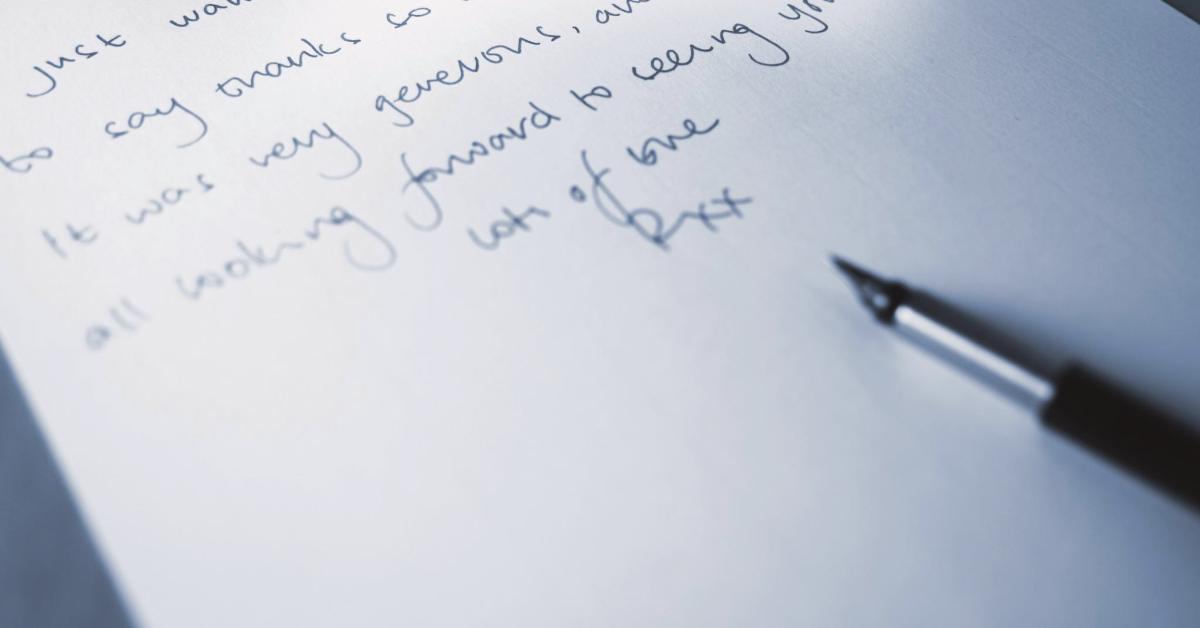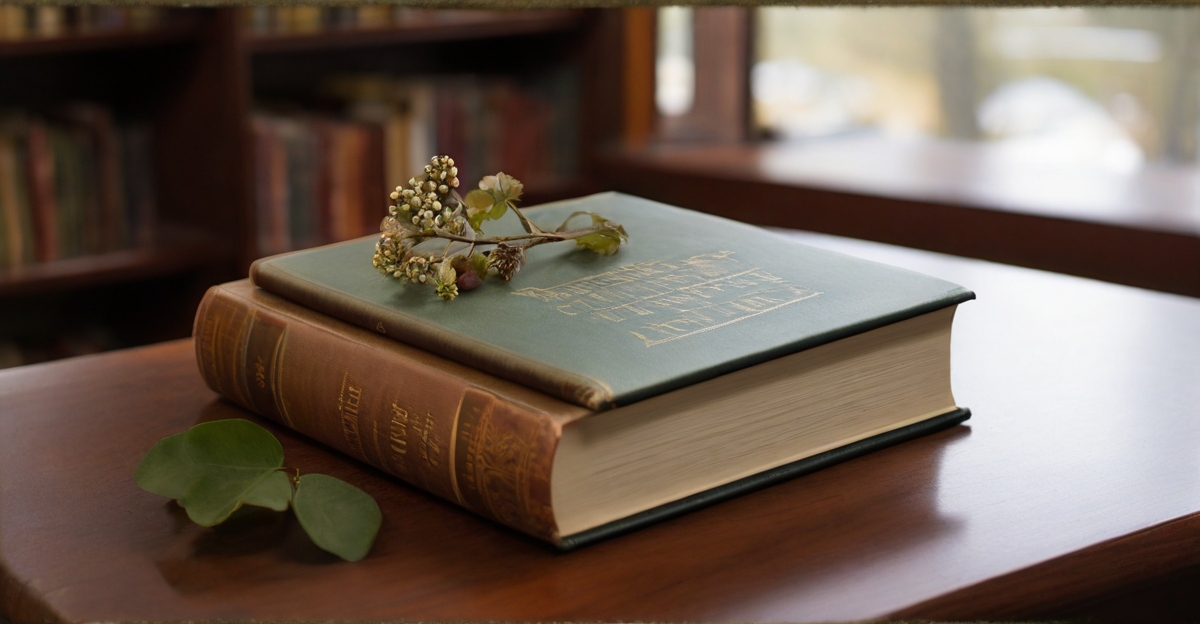What is the Definition of Epic Poetry?

Have you ever heard a story so big it felt like a journey? Epic poetry is just that—giant tales of heroism and adventure.
Today’s blog takes you through the fascinating world of epics, from ancient heroes to poetic storytelling. Keep reading; adventure awaits!
Key Takeaways
- Epic poetry tells long stories in verse form about heroic deeds and legendary figures, often featuring superhuman characters facing monumental challenges.
- Epic poetry originated from the oral traditions of ancient civilizations, like the Sumerians, who recited epics to preserve cultural and historical knowledge.
- Epic poems have had a profound influence on literature and culture, inspiring moral values and shaping storytelling across different cultures and periods. These narratives continue to captivate readers with timeless tales of heroism and larger-than-life characters.
What is Epic Poetry?

Epic poetry is a long, narrative poem that tells the heroic deeds of a legendary or historical figure in an elevated style.
Definition
Epic poems are long stories in verse form. They tell about the fantastic acts and journeys of characters that seem larger than life.
These poems are often extensive in scope, which means they cover significant areas or many places. Heroes in these tales do things ordinary people can’t, like showing super strength or bravery.
These stories aren’t just regular short tales; they’re usually as long as a book. They focus on heroes who stand out from everyone else because of what they do and where their adventures take them.
People call this kind of poem an epic because it’s grand in both size and style.
Characteristics
Epic poetry paints vivid pictures of daring quests and grand adventures. It’s a form of storytelling that has stood the test of time, captivating audiences with its larger-than-life tales.
- Heroes stand at the center of these stories. They are usually people with excellent skills or strength. Often, they have a big challenge or enemy to beat.
- These poems stretch across vast lands or even into the skies and oceans. The settings are enormous and can take you to many places.
- Gods and other powerful beings often show up in the story. They might help the hero or cause trouble for them.
- The tales told in epic poems are not minor events but big, important ones. They may even shape the fate of whole nations.
- Epic poetry is told through verses, not everyday speech. This unique style helps create a rhythm that makes the story grand and memorable.
- Poems like these use old words and phrases that make you feel like you’re hearing a tale from long ago.
- A single voice usually tells the story, which lets everyone know it’s something special being shared.
- The hero might face things no average person could handle—like monsters or tricky tasks only they can solve.
Origins
Epic poems have deep roots going back thousands of years. Long before people wrote stories down, they used epic poetry to share big tales and keep history alive.
Storytellers would recite long adventures about heroes, gods, and wars. These stories were full of action and drama.
The Sumerians created some of the first epic poems around 3000 BCE. Their stories lived on as people told them over and over again.
This way, necessary knowledge, and culture are passed from one generation to the next without writing them down. Epics like these show us how ancient folks saw their world and what they valued most.
Types of Epic Poetry

– Oral Epics, The Indian Epic, and the Ancient Middle East are three main types of epic poetry.
Oral Epics
Oral epics, like Homer’s Iliad and Odyssey, are stories that were originally spoken aloud.
The Indian Epic
The Indian epic tradition is steeped in rich mythology and legendary narratives. Known as Kavya, it encompasses revered texts such as the Ramayana and the Mahabharata.
The Mahābhārata, one of the longest epic poems ever written, holds a significant place in Indian culture and literature.
It weaves together mythological tales with historical events to create an enduring portrayal of ancient India’s traditions, values, and beliefs.
With its larger-than-life characters and timeless themes, the Indian epic poetry continues to captivate readers across generations while offering insightful glimpses into India’s rich cultural heritage.
The Ancient Middle East
The ancient Middle East is home to some of the earliest known epic poetry, dating back to a preliterate heroic age in the Sumerian civilization.
This rich tradition heavily influenced Greek epics and indicates a strong storytelling culture in the region.
The Epic of Gilgamesh, an ancient Near Eastern epic poem, narrates the adventures of Gilgamesh, a hero and semi-divine king of Uruk, offering valuable insights into the beliefs and values of this ancient civilization.
Let’s now delve into types of epic poetry with a focus on oral epics.
Composition and Conventions
Epic poetry follows specific composition and conventions, including the use of verbal formulas, early patterns of development, and bases.
These elements are essential to the structure and style of epic poems. Dive deeper into understanding the composition and conventions of epic poetry by reading on!
Verbal Formulas
Verbal formulas are crucial in composing epic poetry.
- They are repetitive phrases or expressions used to maintain the rhythm and oral tradition of storytelling.
- These formulas create an elevated style in epic poetry, often involving the invocation of a muse or deity.
- Epic poems use verbal formulas to describe heroic deeds and significant events in a standardized manner.
- The use of verbal formulas helps convey the grandeur and significance of heroic figures and their adventures.
- This tradition of using verbal formulas is a standard feature found in epic poetry across different cultures and periods.
Bases
Bases in epic poetry refer to the fundamental stories or mythological events on which the narrative is built.
These bases often involve heroic figures, grand battles, and significant cultural or historical moments that serve as the foundation for the epic poem’s plot.
Examples of bases include ancient tales like the Trojan War in Homer’s “Iliad” and the journey of Odysseus in his eponymous epic.
Epic poets draw from these established bases to create their narratives, infusing them with their distinctive style and interpretation while staying true to the core elements that define an epic poem.
Early Patterns of Development
Moving from the foundational elements of epic poetry to its early patterns of development, it’s important to note that these literary works often emerged from oral traditions.
Early epic poems were initially composed and recited verbally before being transcribed into written form.
The style and structure of these epics also reflected the cultural and social context in which they originated, incorporating themes such as heroism, honor, and the struggle between gods and mortals.
This period marked the establishment of conventions like dactylic hexameters in Greek epics, showcasing a distinct rhythm and meter that became characteristic of this form of storytelling.
These patterns laid the groundwork for subsequent epic compositions across different civilizations, each contributing to the evolution and diversification of this enduring literary genre.
Uses and Significance of Epic Poetry
Epic poetry has been used to preserve cultural and historical stories, inspire moral values, and influence literature and popular culture.
Popular Examples
Epic poetry has produced numerous popular examples that hold significance in literature and culture. These storied works include:
- Homer’s Iliad and Odyssey, recount the heroic deeds of characters like Achilles and Odysseus.
- The ancient Indian epic, the Mahabharata, details heroic battles and deeds.
- Virgil’s Aeneid narrates the legendary journey of Aeneas.
- The Epic of Gilgamesh, is an ancient Mesopotamian poem chronicling a heroic king’s adventures.
- Beowulf, an Old English epic poem that tells of the titular character’s valorous exploits.
- Dante Alighieri’s Divine Comedy describes a poet’s journey through Hell, Purgatory, and Heaven.
Influence on Literature and Culture
Epic poetry has significantly influenced literature and culture, shaping the way stories are told, and inspiring various literary works.
Greek epic poems written under Roman rule often depicted cultures colliding and conflicting identities in a fast-changing world.
The influence of these narratives can be seen in the development of prose passages within epic traditions, as well as in the poetic terms and stylistic features employed by poets such as Homer’s use of verbal formulas that became characteristic elements of epic poetry.
Moreover, epic poetry has left a lasting impact on famous examples like Milton’s “Paradise Lost,” which narrates Satan’s fall from heaven and influences subsequent literary works through its portrayal of larger-than-life characters facing moral dilemmas within grand settings.
Glossary of Poetic Terms
Transitioning from its profound influence on literature and culture, understanding epic poetry also involves familiarizing oneself with key poetic terms.
These terms form the building blocks of epic poetry and help readers appreciate the artistry involved.
Below is a glossary of critical poetic terms presented in an easily digestible table format.
| Term | Definition |
|---|---|
| Alliteration | The repetition of initial consonant sounds in nearby words. |
| Assonance | Repetition of vowel sounds within non-rhyming words. |
| CaesuraA natural pause or break in a line of poetry, usually near the middle. | |
| Epic Simile | An extended simile that is used to intensify the heroic stature of the subject. |
| In Media Res | A narrative that starts in the middle of the action. |
| Meter | The rhythmic structure of lines in verse, usually measured in feet. |
| Rhyme Scheme | The pattern of rhymes at the end of each line of a poem or song. |
| Stanza | A grouped set of lines within a poem, often sharing a common rhyme scheme. |
| Enjambment | The continuation of a sentence without a pause beyond the end of a line, couplet, or stanza. |
| Epithet | A brief phrase that points out traits associated with a particular person or thing. |
| Hubris | Excessive pride or self-confidence that leads to the protagonist’s downfall. |
| Irony | A literary device where the chosen words are intentionally used to indicate a meaning other than the literal one. |
These terms represent just a fraction of the literary devices found in epic poetry but are some of the most crucial for understanding and analyzing this enduring genre.
Concluding Thoughts on What is the Definition of Epic Poetry?
In conclusion, epic poetry is a lengthy narrative form that tells of heroic adventures and extraordinary feats.
These poems have had a significant impact on literature and culture throughout history, reflecting the values and aspirations of diverse societies.
Understanding epic poetry involves recognizing its unique characteristics, historical significance, and enduring influence on storytelling across different cultures and traditions.
With their grand scale and supernatural elements, epic poems continue to captivate readers with timeless tales of heroism and larger-than-life characters.


